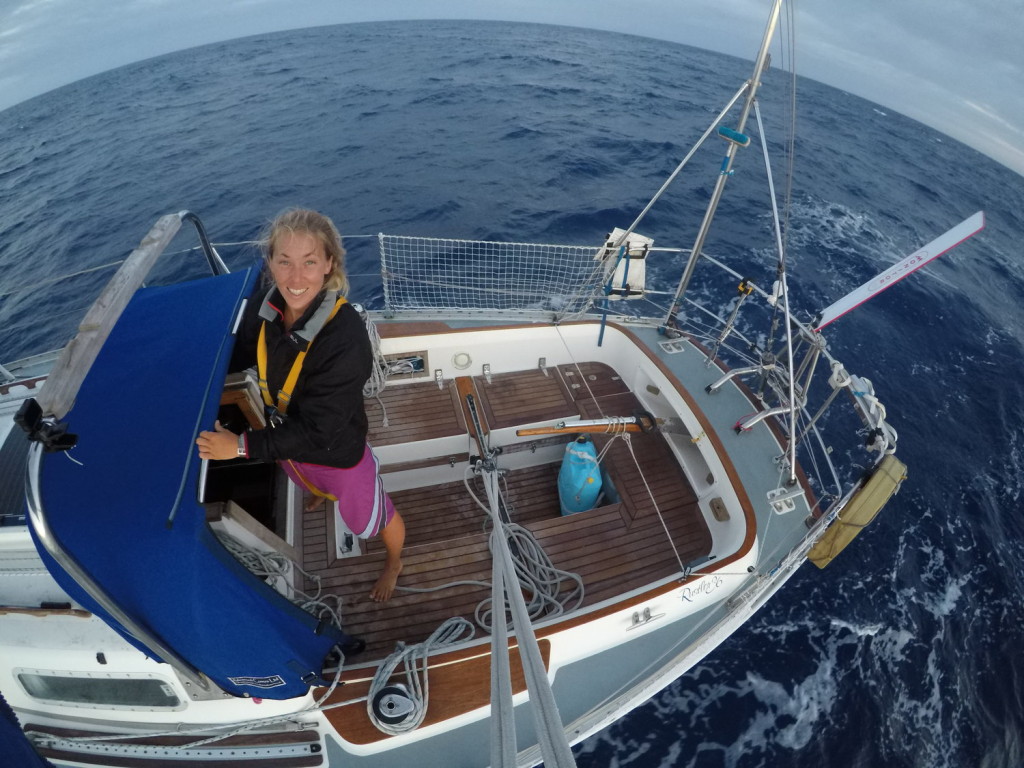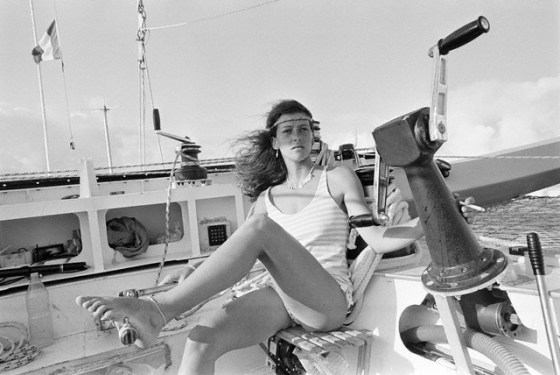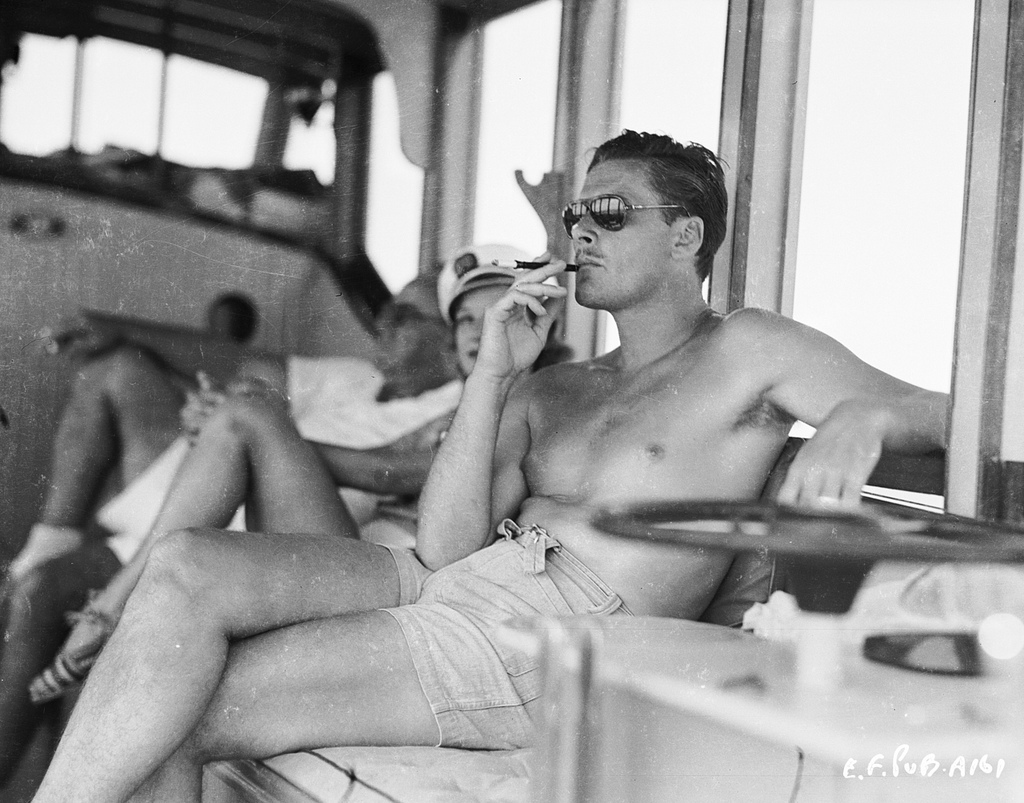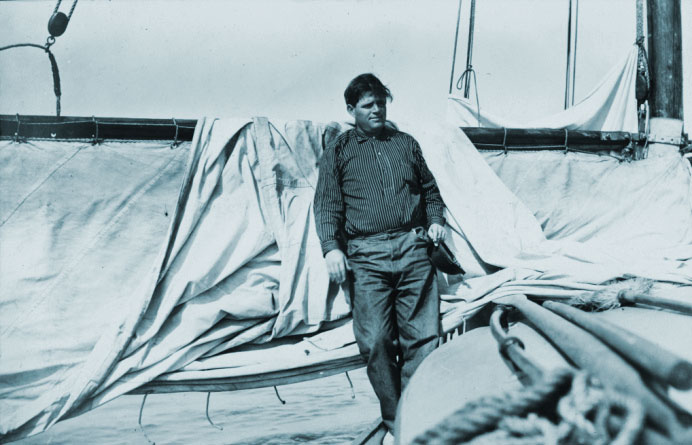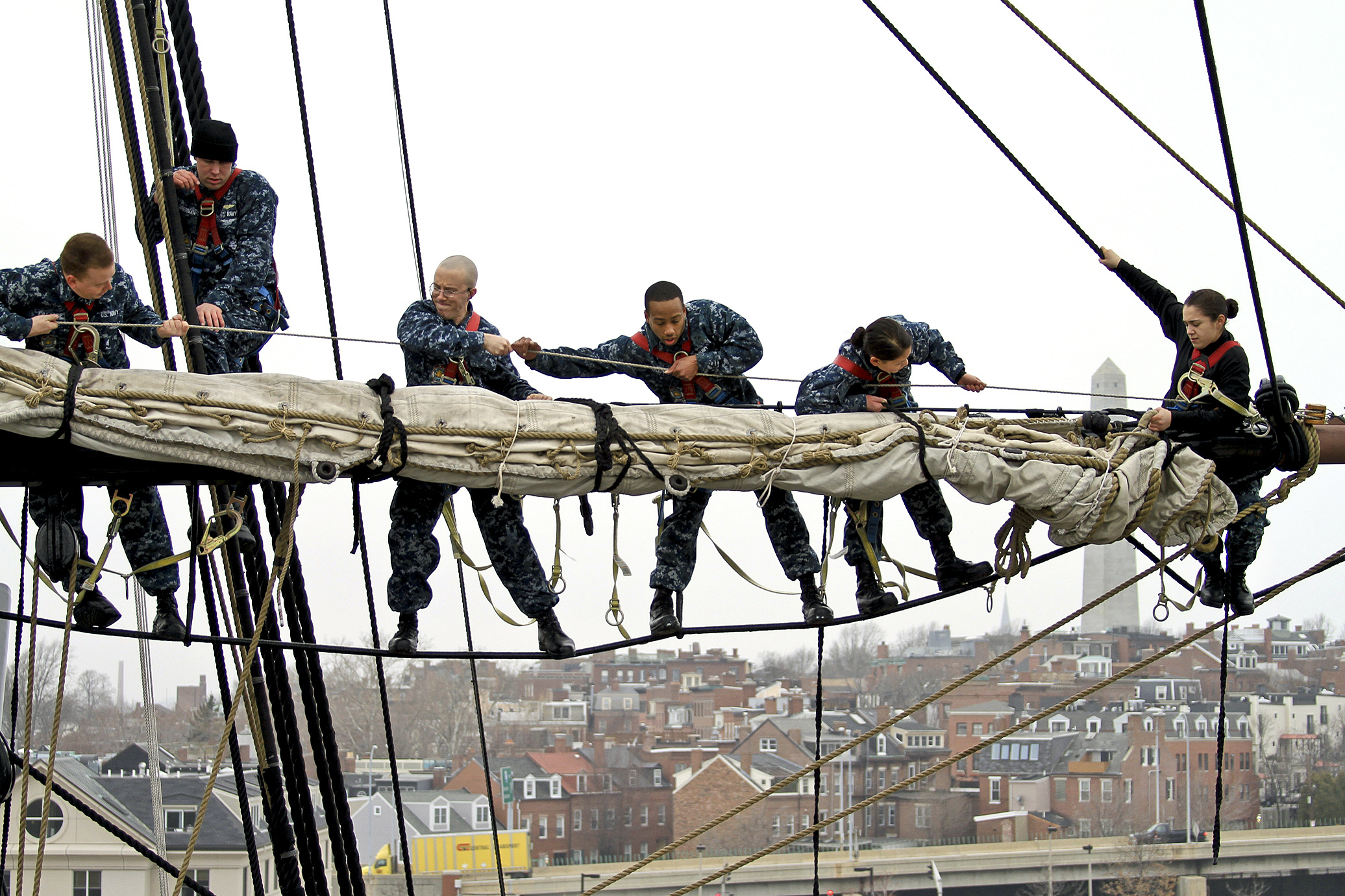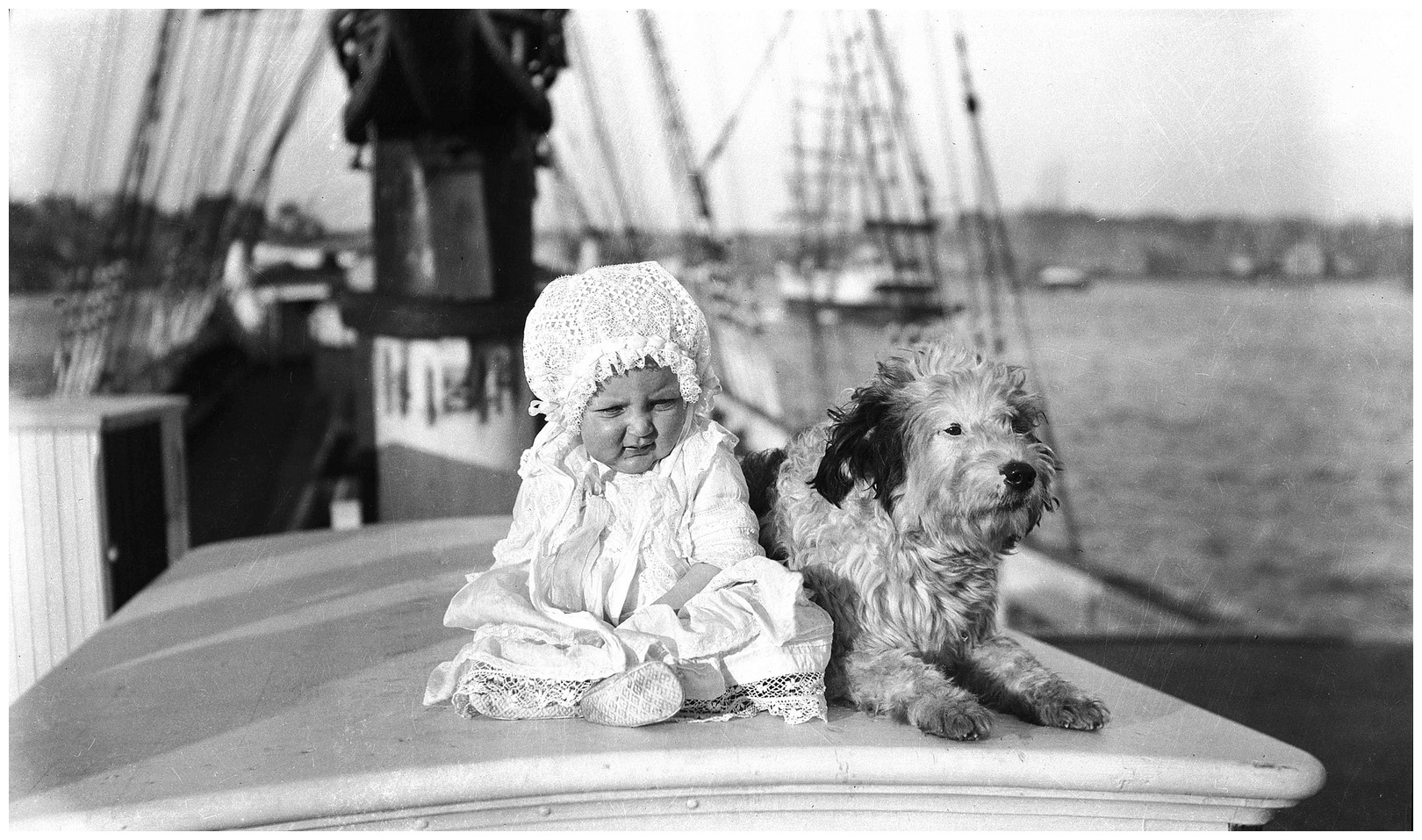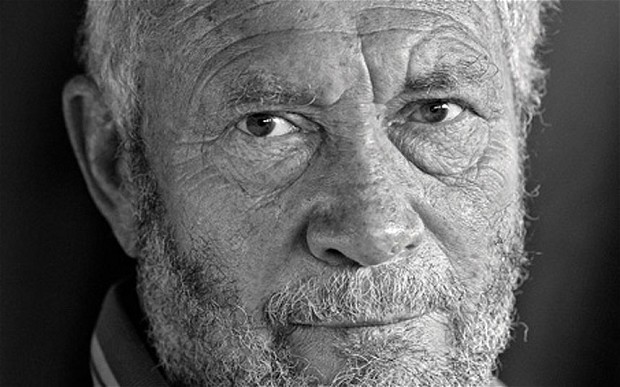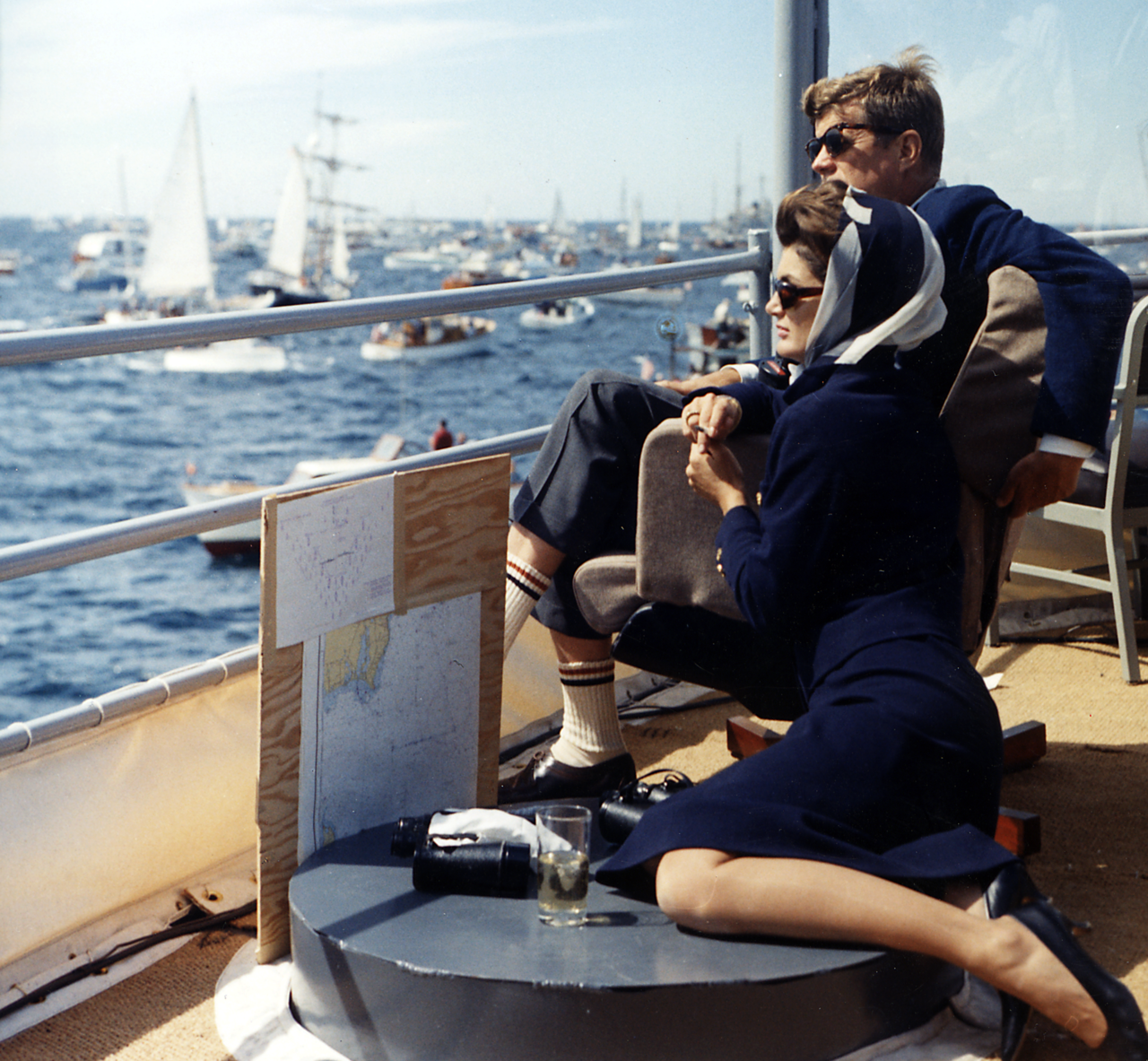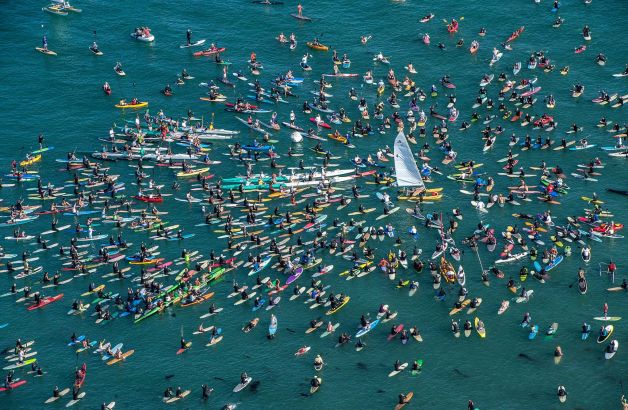
Image by Bruce Chambers, staff photographer, OC Register
To say Hobie Alter was a sailing legend is in no way hyperbole. Following his death on March 29th at age 80, he was remembered last weekend in a traditional Hawaiian paddle out. This article by the OC Register pays fitting tribute to his life as an adventurer and innovator.
As we see it, there are two traditional visions of ocean navigation: the European and the Polynesian.
To European sailors, the ocean was something to be feared, and for good reason. Most crew members did not swim, and their lumbering monohull crafts performed ineptly in bad weather – the heavy cargo they transported and the rocks they piled in the bilge proved only somewhat effective in preventing their ships from rolling over and capsizing. As for motivation, it was not for reasons of adventure but of profit that they were willing to risk their lives: how much could you load up, take elsewhere and sell?
In contrast, more than 1,000 years before Columbus made it across the Atlantic, the Polynesians had settled just about all of the far-flung pacific islands. They swam and dove and surfed and piloted their nimble outriggers and catamarans over great distances. They navigated using not just the stars, but by watching the marine animals that shared their courses, and by interpreting the patterns and angles of the ocean swells upon which they sailed closely. They were one with their environment, and there can be no doubt that they lived to explore new worlds.
Hobie Alter produced the first surf board and modern catamaran based on these relics of Polynesian culture. He did what he loved, and still the money followed. So when it comes to the sea, I ignore my European heritage, devalue the quest for dollars and embrace the Polynesian way of the sea.
“E hoa ma, ina te ora o te tangata.” My friends, this is the essence of life.
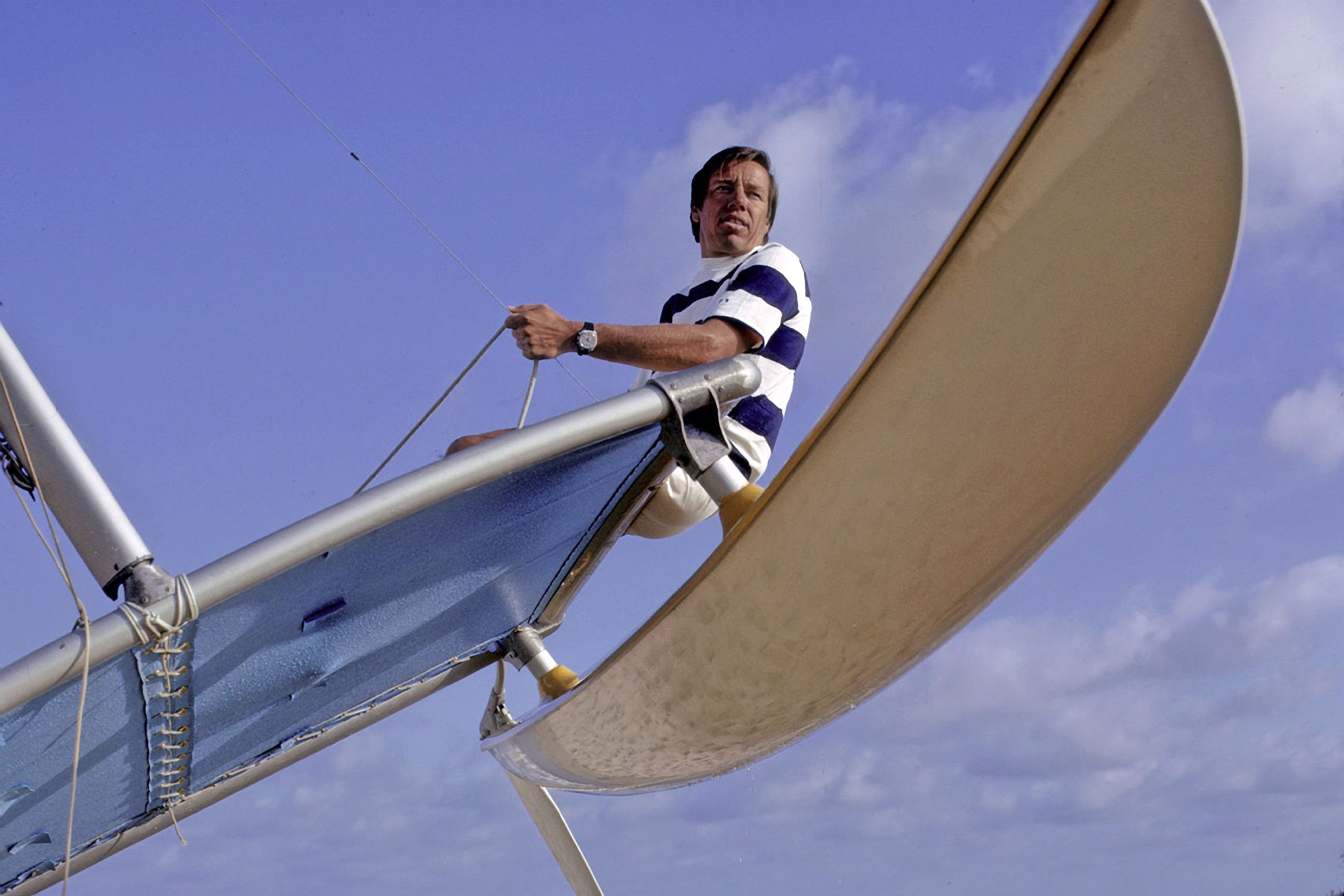
Image by Richard Graham, SHACC
